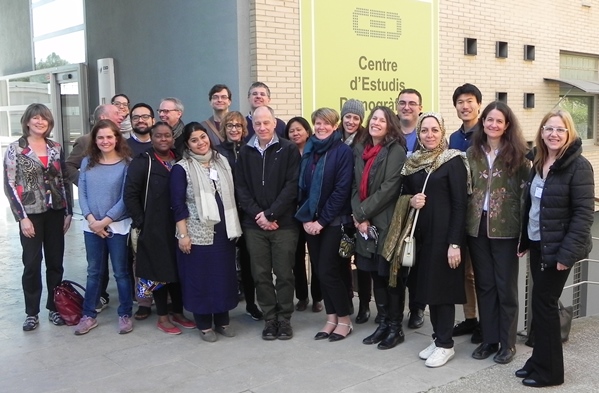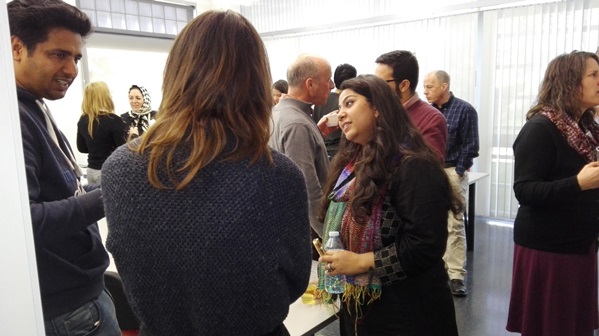New and emerging family forms around the globeBarcelona, Spain, 21-23 March 2018
Organizing Committee: IUSSP Scientific Panel on New and emerging family forms around the globe Brienna Perelli-Harris (University of Southampton) Albert Esteve (Centre d’Estudis Demogràfics, Universitat Autònoma de Barcelona) Maria Midea M. Kabamalan (University of the Philippines) James Raymo (University of Wisconsin at Madison) Sharon Sassler (Cornell University)
The International Seminar on New and Emerging Family Forms around the Globe was held at the Centre for Demographic Studies (CED) in Barcelona, Spain Mar. 21-23. The meeting benefited from the generous support of CED and the IUSSP, and the contributions from each of the participants’ own travel funds.
The programme on the first two days consisted of 17 presentations and lively discussions. Midea Kabamalan and Albert Esteve provided an introduction to the workshop, and Brienna Perelli-Harris synthesized the papers in a final presentation.
A total of 26 international participants attended the meeting, including researchers from the Philippines, the UK, Mongolia, India, Colombia, Germany, the Czech Republic, South Africa, Iran, the United States, Canada, France, Australia, and Spain; 13 observers from CED also attended. On the third day of the meeting, the organizing committee met to discuss future directions for the Scientific Panel.
The presentations highlighted a range of new family types and covered most parts of the world. On the first day, the research primarily focused on marriage and cohabitation, including the striking increase of childbearing in cohabitation in the Philippines, the surprisingly common incidence of cohabitation before marriage in Mongolia, and the meaning of serial cohabitation in Germany. Researchers presented on both the causes and consequences of cohabitation, for example family policies creating marriage-cohabitation divides along the Swiss-French border, the economic situation of cohabitors around Europe, and the influence of cohabitation on attitudes towards divorce. We also heard about fatherhood and the progression of relationships in the U.S., and how catastrophic events such as HIV/AIDS can fundamentally change partnership trajectories, as happened in South Africa. Finally, we heard about countries experiencing few or only subtle changes in the family, for example female headed households in India and university women negotiating pre-marital sexual relationships in Iran.
On the second day, we discussed partnership behaviors that are just beginning to emerge around the world. Researchers presented on the remarkable increase in lifelong singlehood in Japan, Europe, and around Asia.
Participants from Australia and Canada discussed the nuances of Living Apart Together relationships, and we heard about trends in same-sex marriage across Europe. Taken as a whole, the research illustrates what happens when the cap of social norms is removed and individuals are able to choose their own relationship paths, from remaining single, to having multiple partners, to being in a life-long marriage. However, it also revealed the economic and social constraints that individuals now face as they navigate through their lives.
The Barcelona workshop inspired new thinking about families around the world, and we plan to continue the work of the IUSSP panel with future activities. First, we will organize a mini-workshop at PAA in 2019 that focuses on lifelong singlehood. Second, Maria Midea Kabamalan has agreed to host a second IUSSP seminar at the University of the Philippines Population Institute in 2020; this workshop will focus on the consequences of new family forms for populations and individuals.
Please look out for the calls for these workshops!
See also:
|


